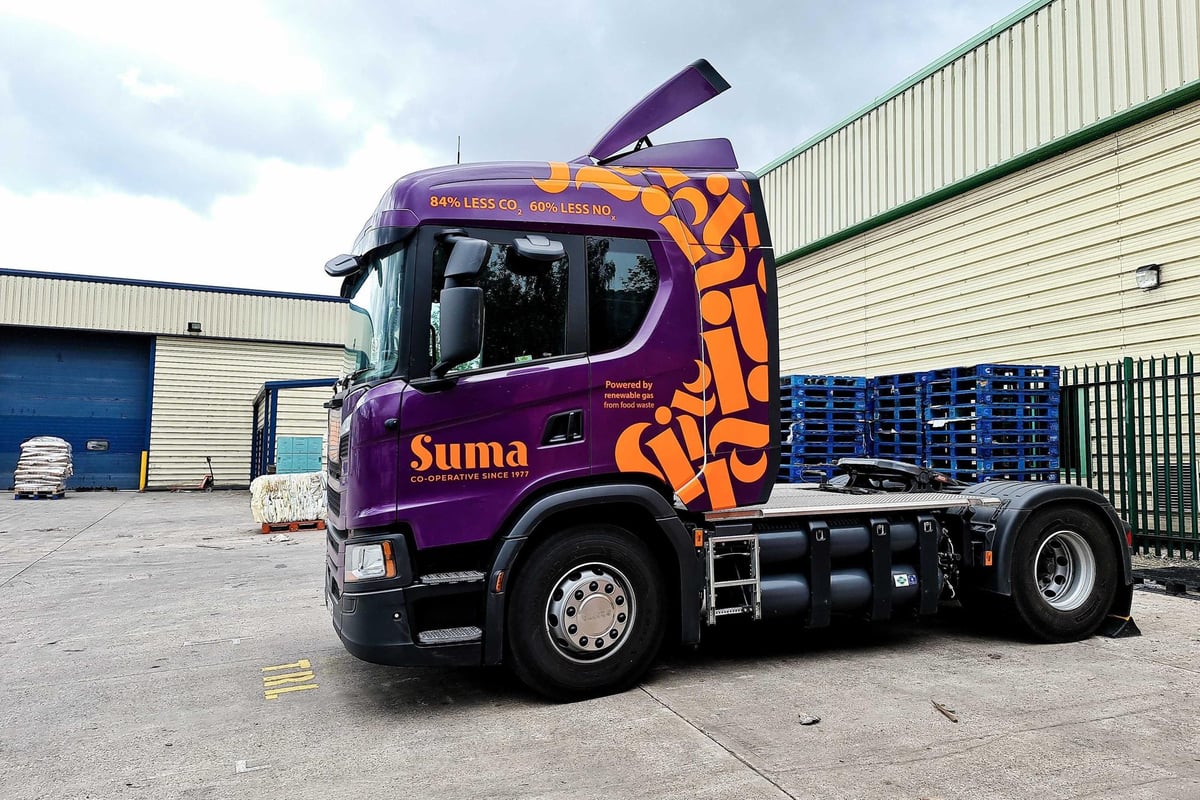Suma Wholefoods, the esteemed Yorkshire-based equal-pay worker cooperative, has recently unveiled its second annual Sustainability Impact Report, offering a comprehensive look into its environmental and social stewardship. This timely publication arrives as 2024 marks a pivotal year, being the first on record where the global average temperature surpassed the critical 1.5°C warming limit stipulated by the Paris Agreement, underscoring the urgency of corporate responsibility.
A significant highlight within the report details Suma’s proactive engagement with leading carbon consultants, enabling a precise forecast of their emissions trajectory. This strategic collaboration has been instrumental in aligning their long-term Net Zero target with a stringent 1.5-degree warming scenario, robustly demonstrating their commitment to science-based targets initiative (SBTi) principles and tangible climate action.
Further reinforcing their dedication to environmental integrity, Suma Wholefoods has solidified a crucial biogas pledge. Confronted with the challenge of increased prices for sustainable BioMethane due to the prevalence of cheaply produced, falsely labelled alternatives from overseas, the worker cooperative steadfastly upheld its ethical values, opting to commit to the higher price premium for genuinely sustainable fuel sources, a testament to their unwavering principles of ethical sourcing.
The cooperative’s updated Buying Policy stands as a cornerstone of its operational ethos, meticulously outlining Suma’s stringent preferences for introducing new products into its extensive range. This policy places a pronounced emphasis on items that inherently follow the foundational principles of reduce, re-use, and recycle, thereby actively promoting a holistic approach to sustainable living across its supply chain and consumer base.
Beyond product lifecycle, the revised policy also explicitly details Suma’s strong preference for cultivating partnerships with suppliers who diligently adhere to advanced sustainable agricultural practices. This encompasses a broad spectrum of environmentally conscious methods, including but not limited to Organic, Regenerative Agriculture, and Biodynamic growing techniques, ensuring that their sourcing aligns with broader ecological health.
Naturally, Suma Wholefoods continues to set an unparalleled benchmark in the realm of decent work, particularly excelling in gender equality and economic parity. Operating on a foundational model of 100% equal pay for all workers, the cooperative proudly asserts that there are no discernible pay gaps, exemplifying a truly equitable remuneration structure within a thriving worker cooperative.
Suma’s profound commitment to transparency is meticulously documented throughout their comprehensive Sustainability Report, providing stakeholders with clear insights into their progress. Ben Pearson, Suma’s Sustainability Coordinator, articulated the cooperative’s resolve, stating, ‘Despite a turbulent year, it has been encouraging to see the tangible results our actions are having in reducing our impact as we strive towards net zero. We are proud of the effort and collaboration across our teams to update our buying policy. As a wholesaler, our supply chain is critical to how we do business, and setting out our guidelines and standards is crucial for us to uphold our strong ethical values and continue sourcing responsibly.’
Echoing this sentiment, Rebecca Kinnard, a product developer at Suma, offered a perspective on the broader implications of their work: “It’s hard not to feel despair seeing the climate crisis play out in front of us now, so working on our report has been a real positive amongst the negative. By sharing our commitments and achievements, we hope to inspire more businesses and prove that operating sustainably isn’t just possible, it’s vital.” This collective conviction underscores Suma Wholefoods’ leadership in fostering a more responsible and equitable business landscape.






Leave a Reply